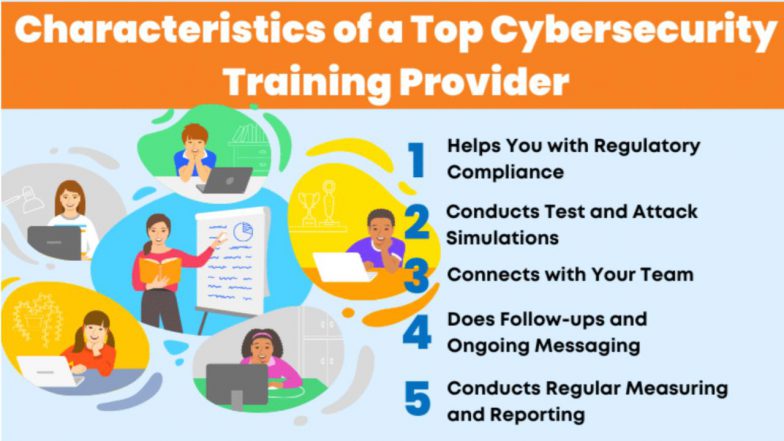Summary
Top cybersecurity educators include academics like John Hammond and Gerald Auger for their practical, accessible content, as well as industry experts such as Brian Krebs, Troy Hunt, and Shira Rubinoff, who contribute through their writing, training, and thought leadership.
Other notable educators include professors at universities like Georgia Tech, LSU, and EC-Council University, and professional instructors from organizations like SANS Institute and EC-Council.
OnAir Post: Top Educators
About
Gemini AI Overview
Prominent individuals and content creators
- John Hammond: A YouTuber and educator known for practical, hands-on training in ethical hacking and malware analysis.
- Gerald Auger: A cybersecurity professor and YouTuber who provides career advice and security training, and is known for his daily threat briefings.
- Brian Krebs: A well-known journalist and author who focuses on cybercrime and cybersecurity issues.
- Troy Hunt: An online security expert who is the creator of the data breach notification service “Have I Been Pwned”.
- Shira Rubinoff: An expert in cybersecurity, blockchain, and women in technology who is recognized for her thought leadership.
University professors and researchers
- David Bader: Chair of the School of Computational Science and Engineering at Georgia Tech and a chief data scientist.
- Yuri Diogenes: A professor at EC-Council University and author of several books on cybersecurity.
- Golden G. Richard III: A professor at Louisiana State University (LSU) and an associate director of cybersecurity.
- Kathleen M. Carley: A professor at Carnegie Mellon University whose work influences policy in many fields.
Professional instructors and trainers
- Robert M. Lee: SANS Fellow and CEO of Dragos, specializing in industrial and operational technology cybersecurity.
- Eric Conrad: A SANS Faculty Fellow and course author with extensive experience in intrusion detection, threat hunting, and penetration testing.
- Nicole Dyess: A 2023 EC-Council Academia Instructor of the Year winner known for innovative teaching methods and fostering a collaborative learning environment.
Source: Gemini AI Overview – 11/9/2025
Gemini AI Deep Dive Overview
Renowned Cybersecurity Experts and Educators
- Bruce Schneier: A prominent security technologist, cryptographer, and author of several influential books on the subject. He is considered a foundational figure and an ongoing voice through his insightful commentary and blog.
- Troy Hunt: Creator of the data breach notification service “Have I Been Pwned,” Hunt is a key educator on password security and data protection, offering courses and speaking widely.
- Mikko Hyppönen: As the Chief Research Officer at WithSecure, he is a leading global expert on malware, surveillance, and internet safety, known for influential TED talks and extensive research.
- Brian Krebs: An investigative journalist behind the “Krebs on Security” blog, he provides in-depth education on cybercrime, data breaches, and the tactics of cybercriminals.
- Katie Moussouris: A pioneer in bug bounty and vulnerability disclosure programs, she founded Luta Security and has worked with major organizations to establish secure systems, educating the field on responsible disclosure.
- Jayson E. Street: A passionate speaker and penetration tester, Jayson educates through dynamic live demonstrations that highlight real-world physical and digital vulnerabilities.
- Eva Galperin: The Director of Cybersecurity at the Electronic Frontier Foundation (EFF), she focuses on protecting vulnerable populations from digital threats and advocating for online privacy rights.
Noted Educators in Academic and Training Institutions
- Dr. Johannes Ullrich: Founder of the Internet Storm Center and a podcaster, he is a recognized professor and a key figure in the SANS Technology Institute faculty.
- Frank Kim: As the founder of ThinkSec, he leads the Cybersecurity Leadership and Cloud Security curricula at SANS and is a respected course author and instructor.
- Heather Mahalik Barnhart: A leading expert in digital forensics, she is a SANS Institute faculty member known for her work on high-profile cases and instruction on forensic analysis.
- Robert M. Lee: CEO of Dragos and a SANS Fellow, he is a top authority in industrial control system (ICS) cybersecurity, turning real-world adversary tradecraft into practical defense skills.
- Chuck Brooks: With over 25 years of experience, he teaches courses in homeland security and cybersecurity at Georgetown University and is consistently named a top expert to follow.
Source:

